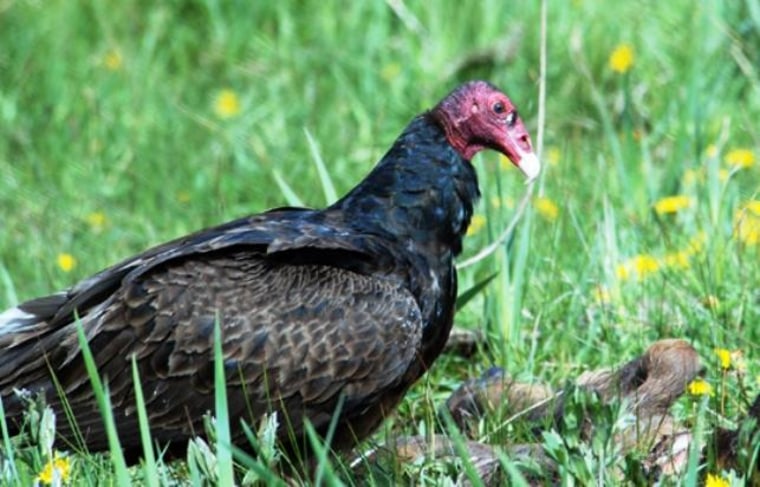Vultures' faces and large intestines are teeming with bacteria that would be toxic to most other creatures, but these birds of prey have evolved a strong gut that helps them not get sick from feasting on rotting flesh, according to a newly published study.
The study's researchers found that vultures are laden with flesh-degrading Fusobacteria and poisonous Clostridia. As bacteria decompose a dead body, they excrete toxic chemicals that make the carcass a perilous meal for most animals. But vultures often wait for decay to set in, giving them easy access to dead animals with tough skins.
Moreover, vultures will often pick at a dead animal through its anus to get at the entrails. Their diet may be filled with toxic bacteria and putrid feces, but vultures are apparently immune to these deadly microbes. [In Photos: Birds of Prey]

"Our results show there has been strong adaptation in vultures when it comes to dealing with the toxic bacteria they digest," University of Copenhagen microbiologist Michael Roggenbuck said in a statement.
To sample the vultures' bacterial communities — called microbiomes — the team captured and euthanized 26 black vultures (Coragyps atratus) and 24 turkey vultures (Cathartes aura) in Nashville, Tennessee. Autopsies and DNA tests revealed the bacteria that lived on the birds' faces and large intestine.
The DNA of the vultures' prey was broken down in the birds' gut bacterial samples, which suggests that they have harsh chemical conditions in their gastrointestinal tracts, the researchers found. The acidic gastrointestinal tract also filters out many microorganisms that live on decaying carrion, so the large intestines have large amounts of Clostridia and Fusobacteria.
"On one hand, vultures have developed an extremely tough digestive system, which simply acts to destroy the majority of the dangerous bacteria they ingest," Roggenbuck said. "On the other hand, vultures also appear to have developed a tolerance toward some of the deadly bacteria — species that would kill other animals actively seem to flourish in the vulture lower intestine."
The study was published Tuesday in Nature Communications.
— Laura Geggel, LiveScience
This is a condensed version of a report from LiveScience. Read the full report. Follow Laura Geggel on Twitter. Follow LiveScience on Twitter, Facebook and Google+.